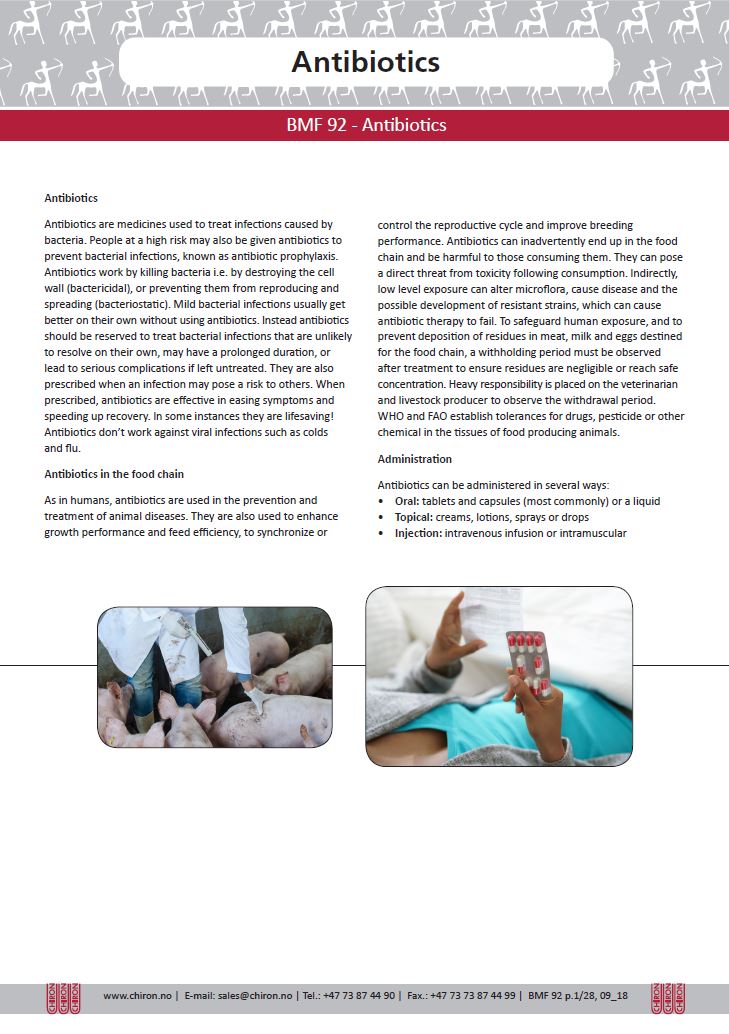BMF 92 - Antibiotic Reference Materials

Antibiotics are medicines used to treat infections caused by bacteria. People at a high risk may also be given antibiotics to prevent bacterial infections, known as antibiotic prophylaxis. Antibiotics work by killing bacteria i.e. by destroying the cell wall (bactericidal), or preventing them from reproducing and spreading (bacteriostatic). Mild bacterial infections usually get better on their own without using antibiotics. Instead antibiotics should be reserved to treat bacterial infections that are unlikely to resolve on their own, may have a prolonged duration, or lead to serious complications if left untreated. They are also prescribed when an infection may pose a risk to others. When prescribed, antibiotics are effective in easing symptoms and speeding up recovery. In some instances they are lifesaving! Antibiotics don’t work against viral infections such as colds and flu.
Click here to find out more.